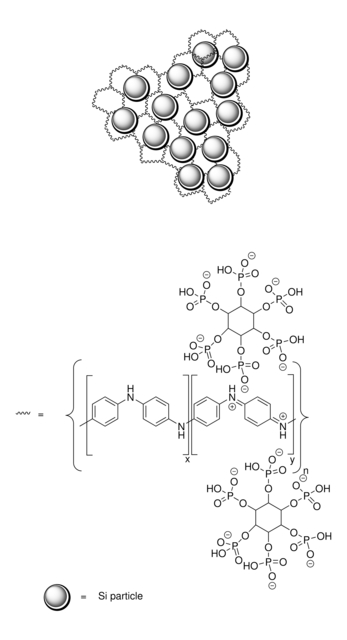912891
High surface area conducting polyaniline
Synonym(s):
3D cross-linked polyaniline, emeraldine salt, doped by phytic acid, Conducting polymer, PAni, Polyaniline hydrogels, Self-healing polyaniline, Supercapacitor polyaniline
About This Item
Recommended Products
description
Electrochemical activity: see picture
Quality Level
form
solid
solubility
water: insoluble (swell into hydrogel)
Related Categories
Application
Storage Class Code
11 - Combustible Solids
WGK
WGK 3
Flash Point(F)
Not applicable
Flash Point(C)
Not applicable
Choose from one of the most recent versions:
Certificates of Analysis (COA)
Don't see the Right Version?
If you require a particular version, you can look up a specific certificate by the Lot or Batch number.
Already Own This Product?
Find documentation for the products that you have recently purchased in the Document Library.
Articles
Recent demand for electric and hybrid vehicles, coupled with a reduction in prices, has caused lithium-ion batteries (LIBs) to become an increasingly popular form of rechargeable battery technology.
Self-healing soft electronic materials offer potential cost savings and reduced electronic waste.
Our team of scientists has experience in all areas of research including Life Science, Material Science, Chemical Synthesis, Chromatography, Analytical and many others.
Contact Technical Service



